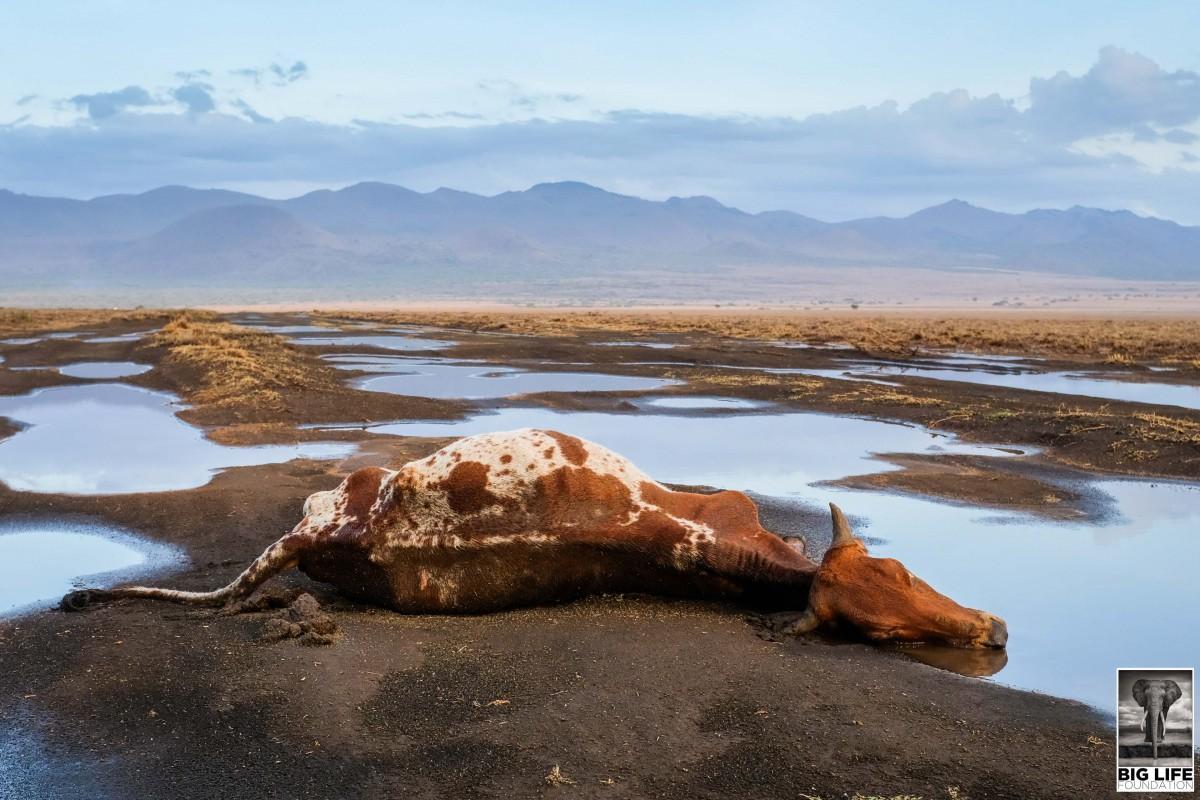
Something is wrong here. The smell of rotting flesh fills the air. Scavengers wander leisurely from one carcass to the next, spoilt for choice and with no need to fight over scraps.
Humans are pretty good killers, but we’ve got nothing on nature. We’re coming to the end of what looks to be the worst year of rainfall since the last major drought in 2008/09, and the impact has been immediate and severe.
We’ve just watched hundreds of wild animals, and thousands of livestock, die from starvation or other drought-related ailments. Among those wild animals have been at least 15 elephants, each known by name to the Amboseli Trust for Elephants. Four of these elephants have been old females, and each of these deaths represents not only the loss of a mother and family member, but a huge amount of important survival knowledge.
Many of these deaths could have been avoided. Droughts will always come and go, but the impact of them depends on how well the land is managed in the periods in between. Across Amboseli, traditional management systems have fallen away, replaced by the inaction typical of modern-day politics. Hard decisions are hard to make, because they can cost leaders their positions.
This is one of the most pressing conservation issues here and across Africa. It’s a question of how we manage the wild land that remains, and keep it productive for wildlife AND for local communities. Big Life is happy to be working with the Amboseli Ecosystem Trust, a grass-roots organization that is taking a leadership role in land-use management decisions. On the ground, we are working with local communities to support grazing planning from the bottom up. This is complicated work, and not very sexy, but it is necessary to the long-term success of our conservation programs.
The rains have now finally started to fall in Amboseli. Not huge amount, but enough to avert complete disaster. The animals have started to lift their heads, slowly regaining their energy levels. We are now holding our breath, and hoping that the rains keep coming.
